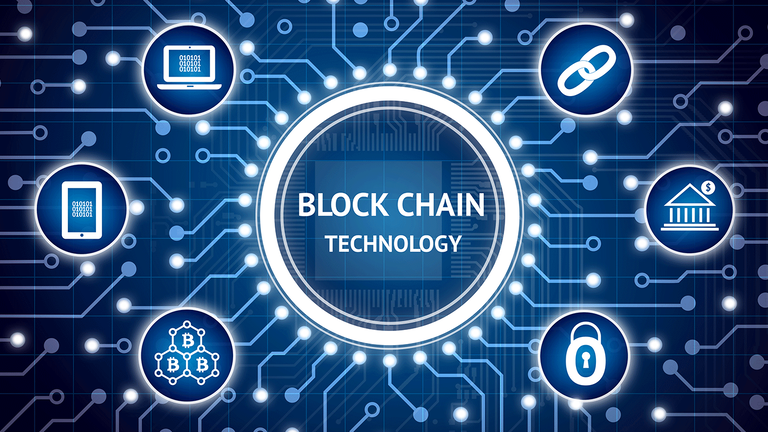It’s safe to say that blockchain technology has come a long way since its humble beginnings as the underlying code of Bitcoin back in 2009. From being an obscure technical innovation to developing a market capitalization of over $300 billion and becoming recognized as one of the most promising technologies of the fourth industrial revolution. The potential applications for blockchain are almost limitless, with special attention paid to how this technology can impact different industries, including healthcare, finance, and supply chain management. There is no doubt that blockchain is set to have a seismic impact on our world as we know it. From healthcare records to voting systems, from supply chains to digital advertising – it seems there isn’t an industry that won’t be transformed by this new technology. In this article we explore how blockchain technology is changing the world in ways you might not have imagined.
Blockchain Basics
The best way to understand blockchain is to take a step back and look at it in the context of how our existing systems work. Blockchain is an online database that stores data in linked blocks, which are secured with cryptography. These blocks are then distributed on a peer-to-peer network, meaning there is no central storage location. Each block contains data about its content and the order in which it was added. Then each block points to the previous block, forming a chain. This means that if one link in the chain were to be corrupted or tampered with, it would immediately be spotted by any person on the network and recorded as such. This makes blockchain databases extremely secure because any changes made to any individual block are recognized as invalid by every other node on the network, meaning it’s virtually impossible for hackers to corrupt or manipulate data stored on a blockchain database without being detected. Blocks can also contain increased levels of security like additional layers of encryption or biometric verification for access – making them even more secure than traditional databases.
Supply Chain Management
One of the most obvious and immediate uses for blockchain in business is supply chain management. Blockchain’s public ledger system can be used to instantly track the history of shipments, from the moment they leave their origin to when they arrive at their destination. This can help reduce fraud and errors, as well as increase efficiency by allowing companies to reduce the number of people required in a supply chain. Blockchain can also help with quality control, reducing waste and improving product safety by providing accurate information about where exactly ingredients came from and whether or not they are expired. In this way it can improve food safety by making it easier to identify outbreaks of contamination earlier on. Blockchain technology is set to have a seismic impact on our world as we know it. From healthcare records to voting systems, from supply chains to digital advertising – it seems there isn’t an industry that won’t be transformed by this new technology.
Banking and Finance
Banking and finance are two industries that will see the biggest changes with the introduction of blockchain. The finance industry is set to undergo a revolution as it becomes easier, faster and cheaper to exchange funds, stocks, bonds and other securities. This will be possible thanks to smart contracts and decentralized exchanges. The banking industry will also be transformed by blockchain technology. Banks are working on ways to use this technology for making loans more efficient, which would eradicate the need for bank branches and ATMs in their current form. Blockchain technology could also offer an improved payments infrastructure for international transactions and cross-border settlements, which would have significant impacts on the banking industry as a whole. Another common use of blockchain in this case is in speculating on the crypto tokens used to flip profits. While this might be a fast and volatile way to grow your money, a quick crash could easily set you back most of your investment. For a list of online slots that have reliable payouts and steady buy-ins, click here.
Data Integrity
One of the most compelling advantages of blockchain over traditional databases is that it provides a trustworthy record of data. All transactions are recorded on a distributed ledger, which cannot be altered or tampered with. This means that if you were to store your medical records on a public blockchain then it would provide an immutable and reliable way for doctors to access and update your information. This can also be applied across other sensitive industries such as finance, where banks have invested heavily in blockchain technology to minimize fraud and reduce their risk exposure.
Decentralized Storage and Processing
of Data The best thing about blockchain technology is that it’s decentralized. This means there isn’t a single data store that can be hacked to reveal all the information on the blockchain. Instead, data is stored and processed by user groups who are synced through the internet. Blockchain databases are also incorruptible, meaning they cannot be subject to errors or tampering as we’ve seen happen with past database technologies. Blockchain databases also allow for new ways of storing and processing data; one example being how transactions are processed anonymously with no personal data stored on the network. This ensures privacy for individuals while at the same time eliminating the need for a third-party intermediary to complete transactions.
Conclusion
Blockchain technology has the potential to change the world in ways that you might have never imagined. The technology has opened up new possibilities and opportunities for people and businesses. There are many interesting use cases for blockchain technology, like supply chain management, banking and finance, data integrity and decentralized storage and processing. Blockchain technology is allowing us to rethink the way we transmit value and share data, so it is important to keep an eye on the developments in this sector!
